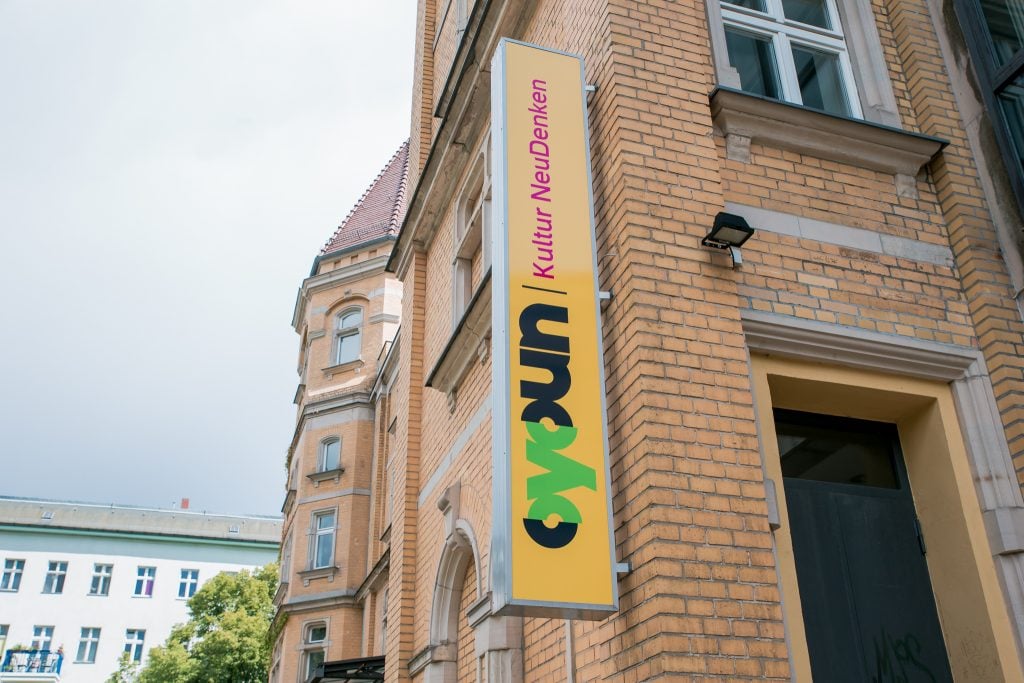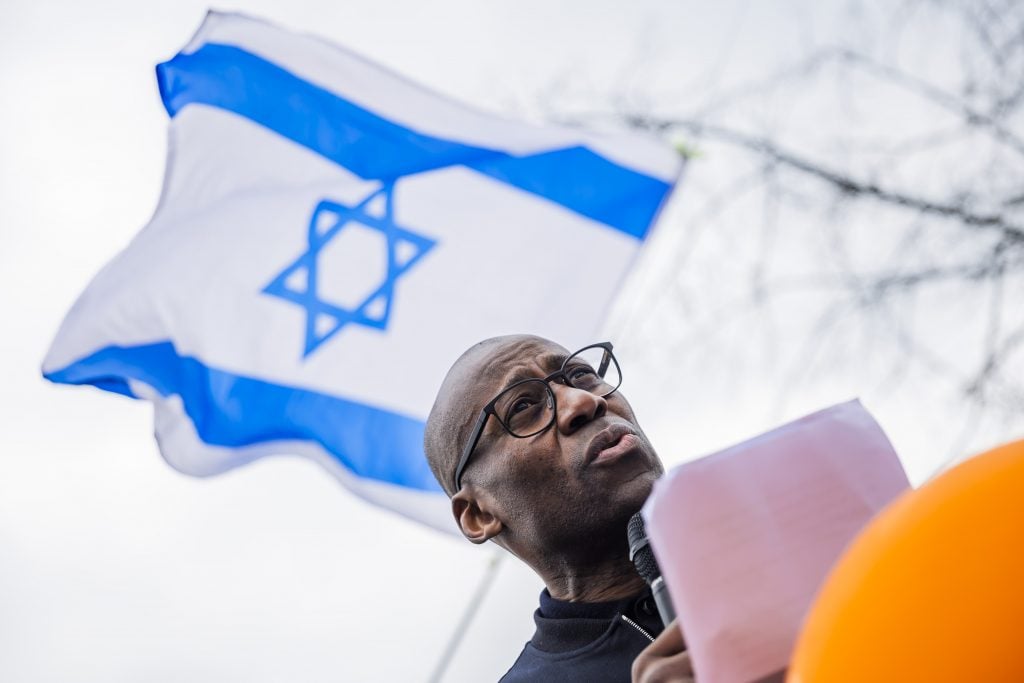Law & Politics
Court Sides with Berlin Arts Center Accused of Antisemitism
Oyoun is still fighting to recover the public funding severed by Berlin's Senate after hosting a controversial event.

Oyoun is still fighting to recover the public funding severed by Berlin's Senate after hosting a controversial event.

Jo Lawson-Tancred

A German court has ruled in favor of a Berlin art organization’s injunction brought against the centrist national newspaper Tagesspiegel. Oyoun Cultural Center, a state-funded arts organization that platforms “migrant, decolonial, and queer-feminist perspectives,” had been accused by the paper of hosting antisemitic events and receiving preferential treatment from the Berlin Senate due to family ties.
On February 20, Tagesspiegel’s daily newsletter, “Checkpoint,” published an article titled, “Oyoun and Berlin’s administration: a terribly nice family.” Citing two of its prior reports both claiming that Oyoun had been the venue for “questionable events and antisemitic incidents,” the paper said that one of the cultural center’s employees had a close family member in the cultural administration. It linked this alleged connection to “the Senate’s conspicuously favorable treatment of the association for a long time.” Green Party member of parliament Susanna Kahlefeld was named as the source.
After the publication of the February 20 article by Tagesspiegel, Oyoun sent cease and desist orders to both the newspaper and Kahlefeld. After Tagesspiegel refused to sign, Oyoun filed an injunction against the statements made in article. In a statement, it also noted that the Berlin Senate had commissioned a report to investigate the accusations of antisemitism and was unable to establish that any antisemitic activity had taken place at the cultural center.
The Berlin court ruled on Monday, March 25, that the newspaper is no longer allowed to express three of the allegations it made in an article dated February 20. Specifically, it found that the allegation of Senate favoritism toward Oyoun based on family connections was baseless and the allegations regarding alleged antisemitic incidents were deemed unfounded.
“We are firmly convinced that unsubstantiated or even refuted allegations should not fall under journalistic freedom of expression and that impartial reporting is mandatory for reputable media,” Oyoun representatives said in a statement.

Joe Chialo, Berlin Senator for Culture and Social Cohesion, speaks at a demonstration under the motto “Together against left-wing, right-wing, and Islamist antisemitism—solidarity with Israel,” organized by the German-Israeli Society. Photo: Christoph Soeder/picture alliance via Getty Images.
The arts organization has been in the crosshairs of cultural criticism since November 2023, when phrases on the center’s social media channels were cited by Tagesspiegel as evidence of antisemitism by critics. These included the use of “settler colonialism” and “apartheid state” in relation to Israel’s military action against Gaza. Additionally, the a planned “celebration of mourning and hope,” an event hosted by Oyoun to commemorate the civilian lives lost in the October 7 Hamas-led attack on Israel, was also deemed antisemitic by critics. Featuring live music, speeches, and an exhibition of art by Israeli and Gazan artists, the event was organized by the Berlin chapter of an international anti-Zionist Jewish group, Jewish Voice for a Just Peace in the Middle East. Berlin’s culture senator Joe Chialo described the event as a form of “hidden antisemitism.”
The Berlin Senate’s Committee for Culture commissioned a report to establish whether the arts center had violated the city’s antisemitism prevention guidelines. The report concluded that “no antisemitic activity on behalf of Oyoun […] is identifiable.” Nevertheless, the committee decided in December to abruptly freeze funding for Oyoun, putting an end to a four-year partnership worth roughly €1 million ($1.1 million) per year and forcing the center to fundraise in order to stay open.
Oyoun denied the accusations of antisemitism and took the Senate to court. The legal proceedings are ongoing and the arts center is still trying to recover the loss in funding.
“As the child of immigrants in Germany, I grew up on the belief that this is a country that dots the i’s and crosses the t’s when it comes to the law, which protects democracy and freedom of speech,” Oyoun’s co-founder Louna Sbou told The Guardian. “And now it looks to me like that was always just a facade.”
Frictions between Germany’s diverse and outspoken cultural scene and the highly cautious, pro-Israel stance of German politics has been the subject of widespread debate since the start of the war in Gaza. Dozens of events, exhibitions, and projects have been called off amid growing fear that artists may lose funding and opportunities due to political views on Israel and Palestine that differ from the official state narrative. A decision made by Berlin’s Cultural Senate that funding only be allocated to cultural producers who committed to a controversially defined antisemitism clause provoked fierce backlash and was soon reversed.